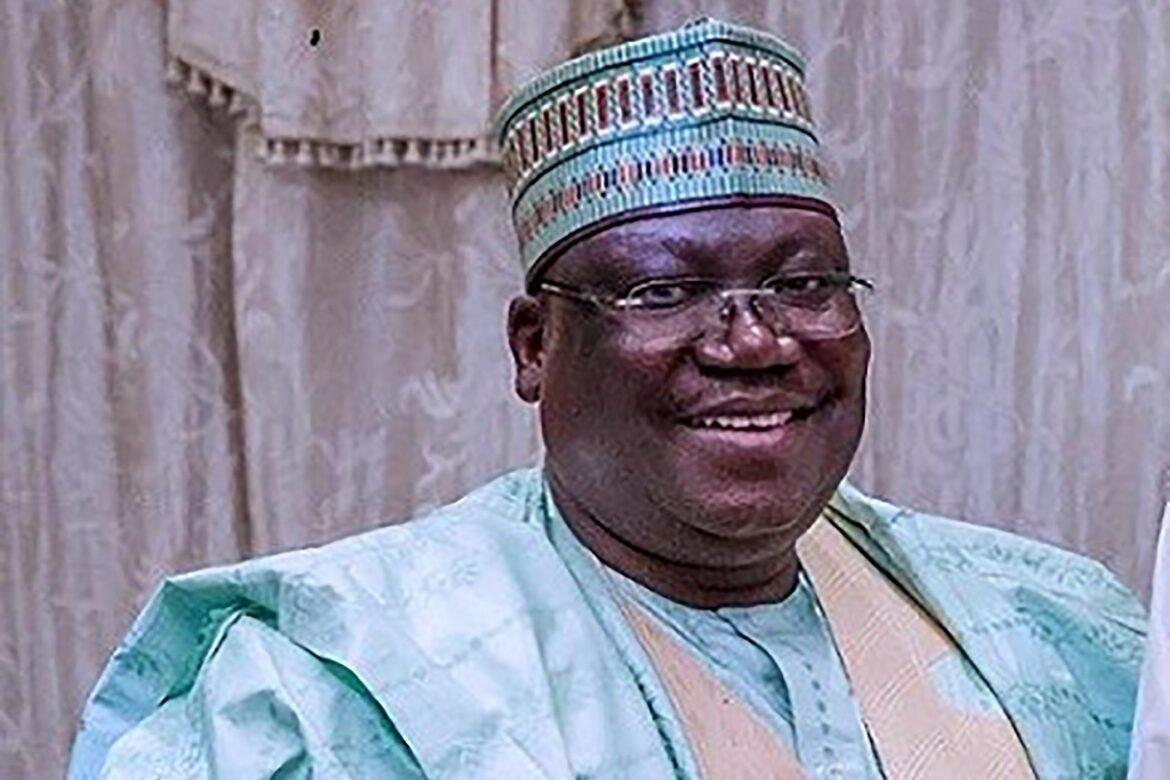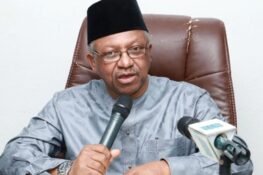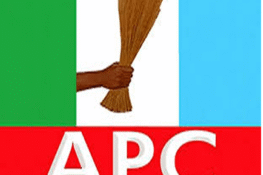Much to Chief Olusegun Obasanjo’s dismay, the ruling APC is on the verge of stamping its mark on all three arms of government.
The former president’s grouse is that the presidency, senate presidency and office of the Chief Justice of Nigeria are all concentrated in the north.
He has never shied away from labeling President Muhammadu Buhari as clannish.
Obasanjo once pretended to have given up partisan politics, but it is clear his heart is still with the opposition PDP, a party he nurtured and made sure came out on top in four successive elections.
Like him, there are dozens more politicians who once left the party but somehow always found their way back to it.
And since first coming to power in 2015, the APC is only now succeeding in getting politicians who haven’t once, not even for a day been members of PDP as president of the Senate and Speaker of the House of Representatives.
For that reason, the chances that they will be heading to it are minimal.
But the first real test for the PDP to prove it won’t be impotent as an opposition party will be pushing through, a rejection of the confirmation of Acting Chief Justice Ibrahim Tanko Muhammad by the senate.
Justices still need to be confirmed by the Senate and the PDP has at least 40 senators to its name and they only need to be loud, really loud to make a point
With the exception of Buhari losing at the election tribunal, nothing would make Obasanjo happier.
Justices still need to be confirmed by the Senate and the PDP has at least 40 senators to its name and they only need to be loud, really loud to make a point.
After the missed opportunity in 2015, it has been a long wait for Ahmed Lawan to get another shot to be senate president.
For four whole years, he has waited patiently, never once trying to upstage the leadership of the upper legislative chamber or upbraid anyone for scheming him out then.
Now that Lawan has been elected to lead the senate, he will learn first hand, that not everyone who comes bearing gifts has the best intentions.
And for everyone around him, at least those who wish him well, their prayers and good will messages have been for God to help him hold on to the seat.
They are prayers he needs. The period in time may have been limited to the years Olusegun Obasanjo held sway in Aso Rock, but still, the Nigerian senate has a history of impeaching its leaders.
Now that Lawan has been elected to lead the senate, he will learn first hand, that not everyone who comes bearing gifts has the best intentions
It wasn’t until Senator David Mark became senate president that that change and the penchant for senators to revolt against their leaders was removed.
Mark redesigned the senate and made it an institution that first of all served the interest of senators and as a secondary purpose, used it to protect the interests of the Nigerian president.
One thing is sure, it brought stability to the senate. As for the Nigerian people, they have been left in the lurch since 1999.
During his leadership, the budget of the National Assembly rose astronomically from to less than N60bn in 2007 to a peak of N150bn before he was replaced as senate president in 2015.
In his pitch last week to his fellow senators, Ali Ndume in asking for their votes to lead the senate, promised senators he would give back to senators, control of their resources under his leadership.
This is supposedly in place of having the resources concentrated in the office of the senate president, which really was a trademark of the Bukola Saraki presidency.
When pushed to the wall, Saraki tried and failed to pass laws that would have granted him immunity from criminal prosecution.
He however succeeded in blocking the confirmation of Ibrahim Magu as EFCC chairman.
He might have picked up from where David Mark left off, but Saraki, more than anyone else before him, personalised the office of the senate president, concentrating not only the resources of the National Assembly in his hands but also the administrative functions of the upper chamber.
Mark redesigned the senate and made it an institution that first of all served the interest of senators and as a secondary purpose, used it to protect the interests of the Nigerian president
It was his way of keeping senators in check, rewarding loyal ones and punishing those that stepped out of line. The senate for him was a platform and stepping stone for much bigger goals.
And so he remodeled the National Assembly in his own image, making it as a stage for political contest with the executive arm of government as though it were a legislative body.
Again, it was the Nigerian people that suffered with poor representation and a senate whose primary purpose was to cater to the financial interest of its members and the political ambitions of its leaders.
There are other examples that illustrate how the National Assembly is structured more as a moneymaking venture for lawmakers than it is an institution that creates laws for the benefit of the country.
The Speaker of the House of Representatives, Yakubu Dogora, created and named 96 standing committees. The committees were created not to make legislative and oversight functions more efficient in service of the Nigerian people.
They were created to nurse the egos and accommodate House members. Maybe that decision was informed by the manner in which he emerged speaker, garnering votes from across party lines and making promises to one too many lawmakers.
The end result was the absence of any real distinction between the ruling party and the opposition.
He might have picked up from where David Mark left off, but Saraki, more than anyone else before him, personalised the office of the senate president, concentrating not only the resources of the National Assembly in his hands but also the administrative functions of the upper chamber
Members of the eighth National Assembly always point to the number of bills they passed as evidence of their work rate and service to the country.
What they never talked about is the quality of the bills they passed and their relevance to society. The Peace Corp Bill is one such proposed bill.
They never talk about the number of bills rejected by the president and bills that had to go back and forth between them and the executive because the bills were riddled with errors.
And if both Lawan and the newly elected speaker, Femi Gbajabiamila cannot reform the processes and functions of the National Assembly, they have already failed Nigerians.
In general terms, that is the senate Ahmed Lawan has inherited. He cannot survive if doesn’t keep in place that system of patronage built by his predecessors.
If both Lawan and the newly elected speaker, Femi Gbajabiamila cannot reform the processes and functions of the National Assembly, they have already failed Nigerians
He holds the power of wielding the carrot or stick against senators. But here is where is where problem lies. Lawan was a candidate of the president for the seat of Senate President, without which he couldn’t have gotten elected.
So, what happens when the wishes of the president are at odds with that of senators? How will Lawan respond? He is no David Mark who was able to balance the interests of both the presidency and lawmakers.
Mark also worked with a president that turned a blind eye to budget padding. Buhari has done no such thing. At every budget signing ceremony, he suggested the budget was being signed with a heavy heart.
For the 2018 budget, lawmakers reportedly introduced 6,403 projects of their own worth N578bn.
Back then, Buhari expressed concerns because the newly introduced projects hadn’t been properly conceptualised, designed and costed.
Maybe not through official channels, and maybe not properly done but the lawmakers usually collude with civil servants in various agencies and ministries before inserting these projects.
Individual lawmakers take charge of specific projects they have interest in, negotiating with civil servants to ensure money for the project is easily released to already identified companies.
In the case of principal officers in the National Assembly, we are talking of hundreds of projects.
And that is why it takes lawmakers six to seven months to pass the budget. Even without it being stated, it well known that the president’s top most interest in legislative activities is putting an end to budget padding; mostly projects inserted into the annual budget for the benefit of lawmakers.
Added to that is the secrecy surrounding how the National Assembly spends the over N100bn it allocates to itself every year.
Yet, this is the institution that is meant to have oversight on all government agencies and ministries, launching one probe after another in search of financial infractions.
Ahmed Lawan has however promised to pass the budget in three months. He wants to bring an entrenched culture to an end.
If only money wasn’t involved. Good luck to him though. How to get lawmakers to forego billions of naira in projects will be a test of his strength of character.
But he cannot be responsible for the civil servants who make budget padding possible. The president will have to clean his own house in that regard.








